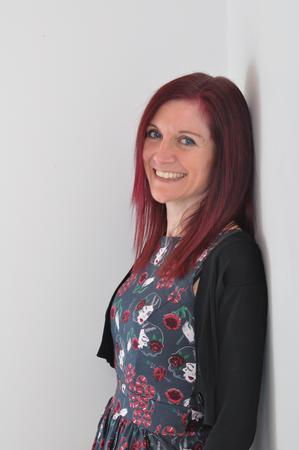(THIS ARTICLE IS MACHINE TRANSLATED by Google from Norwegian)
I'm mourning. Maybe I lost someone who was close to me [see latest winter issue of MODERN TIMES]. Perhaps I myself have experienced a tragedy on my own body. I need help.
I'm taking Shelley F. Knight's book Good grief and start reading. Can you read out griefone? Maybe you can. In any case, the research is on that track.
It reeks of self-absorption, self-development and the zeitgeist's irritating focus on the fact that nothing must be the same, that we must grow throughout our lives.
At the University of Southern Denmark, they received a grant of NOK 30 million for research into so-called bibliotherapy, i.e. the use of literature as a way to get better or at least adjust one's own life story. At the medical school, the students can now choose electives within the field of "narrative medicine", which includes, among other things, the idea that reading literature can help the patient through the course of the illness and including the feelings of grief that person may have with their own illness. The literature that the students come across in narrative medicine, are works by Tove Ditlevsen, Dostoevsky and Ishiguro. But Shelley F. Knight's slightly different self-help book is rather far from these novels Good Grief.
Foot reading, hypnotherapy and kinesiology
Knight otherwise has an interesting starting point for making the book. Her professional background is a nurse, and she has particular experience with cancer patients and palliative care. In recent years, however, she has especially made her mark as a consultant – or to use a more modern word coach – and with a special focus on what she calls "positive change". The term alone sets off some alarm bells for me. It reeks of self-absorption, self-development and the zeitgeist's irritating focus on the fact that nothing must be the same, that we must grow throughout our lives, that everything in the world is static and perhaps also the notion that life should not be painful. However, I try to go into the work with an open mind. Unfortunately, my prejudices about the coaching and self-help literature are mostly confirmed.

Is a book bad simply because its section is 10 lines long, before a new heading suggests itself? No, not necessarily. But in the event Good grief the ultra-short pieces of text become a drag. The book simply lacks a narrative. It lacks a continuous narrative, which can hold us captive and make us follow the author's argumentation and realizations. The many, short sections create a fragmentary, incoherent reading experience.
You can of course use the book as a kind of reference work. The problem with that is simply that the individual postings about, for example, foot reading, hypnotherapy and kinesiology are so sporadic and brief that it gives me nothing. Just irritation. It's like Knight starts his book countless times and never really finishes it. Perhaps the book suffers from being partially based on Knight's podcast and YouTube videos. In any case, the sections bear the tendency of these media to make short, salable statements. There is nothing wrong with that. Less can easily be more. But when the book overflows with phrases such as "work less, live more", "be the best version of yourself" and "the little things in life are really the big things", then it becomes just empty platitudes, which Knight unfortunately does not manages to challenge or give perspective.
When death was something we handled ourselves
Knight is clearly at her best in the slightly more detailed sections, where, for example, she unrolls our historically diverse relationships death. It is especially interesting to hear about how 1800th-century families almost always took care of death themselves at home. Cared for the dying person until the end, washed the person concerned and dressed the deceased in the best set of clothes, so that he was ready for the underworld. There was no funeral institution here, which today seems alienating and taboo. Knight's point here is that death thus becomes impersonal and that, on that basis, we increase our fear of dying and have greater difficulty in accepting death as a natural part of life. Yes, actually as a process, which happens at the same time as life is initiated.
Less can easily be more.
These parts of the book had to be unfolded in full bloom and linked to ideas about grief and ways to handle and live in grief. Unfortunately, Knight does not. She runs on. It's as if she fears boring her reader. It's a pity, because the most boring thing about Knight's book is all the jumps and antics she performs in the hope of keeping her reader captive.


